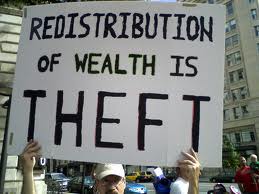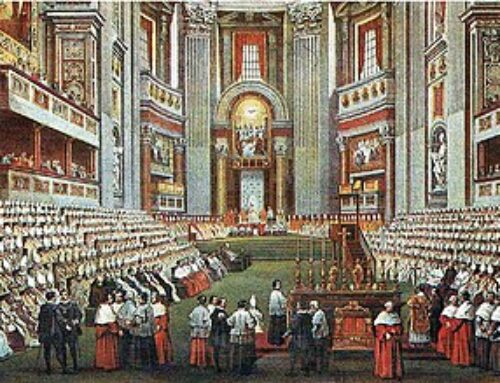You didn’t get there on your own . . . If you were successful, somebody along the line gave you some help . . . Somebody invested in roads and bridges. If you’ve got a business . . . you didn’t build that. Somebody else made that happen.
Thus spoke President Obama, and the media responded in predictable fashion. Liberal pundits argued that the President’s remarks didn’t mean what they seemed to mean. Conservatives claimed the populist mask had slipped and the President’s socialist leanings were revealed. Rush Limbaugh translated the President’s underlying message as people don’t deserve what they have because they couldn’t have gotten it without the government, so the government is justified in taxing them as it pleases.
Perhaps Rush oversimplified a tad, but not all that much. The President clearly gave the government credit for individuals’ achievement, and the argument that the “haves” should be required to pay more taxes has been his signature theme. The matter speaks for itself.
However, what I find most interesting about the President’s statement is something the political pundits have not commented on—the pattern repeated in his most controversial positions. That pattern is to take an essentially religious idea and twist it into an argument for big government. For example, he took the religious idea of social justice and redefined it as government redistribution of private wealth. He also turned the biblical directives to care for the sick and the poor into justifications for Obamacare and the expansion of entitlement programs.
Those who object to the President’s crusade for ever-expanding government have a solid basis for doing so—the principle of subsidiarity—which, as I have noted in earlier essays, is as much a religious principle as an economic one. And there are signs that the objection is shared by an increasing number of Americans.
However, in this ego-burdened age, there is a danger that the reaction against the President’s claim about personal success will go too far. Already, signs and tee shirts proclaiming “I built it” and “I did it myself” are proliferating. And Ayn Rand’s philosophy is being invoked as the best antidote to big government, though it is merely the opposite extreme and no more desirable.
So it is appropriate to pause and remember that the President’s claim in this instance is a distortion of the traditional religious idea that we are indebted to God for all that we have and do. We should also take special care that in rejecting the distortion we do not inadvertently reject the idea itself.
The evidence of our debt to God is everywhere. (Only those who deny God’s existence would deny it, and their denial cannot erase it.) The more we consider that evidence, the more compelling it becomes. God created the universe—the innumerable galaxies with their myriad stars, spanning time and distance beyond measuring; the sun, moon, and planets, including our own earth with its mountains, valleys, forests, seas, plants, and animals. He also created each of us and bestowed on us the greatest gift of all—a nature fashioned in His own image and likeness.
We are indebted to God for our senses that receive information, our intellect that processes it, and our will to use these gifts to discover meaning and create ideas, implements, procedures, systems, and institutions.
The only part of achievement for which we have the slightest basis for saying “I did it alone” is our freely chosen effort. Whether our gifts are ordinary, as they are for most of us, or extraordinary as in the case of a famous singer, athlete, or inventor, we can claim credit for developing and using them. (Though even there we must acknowledge that God provides the discernment and motivation, which Christians call “grace,” to put forth the effort.)
But no one can take credit for the gifts themselves; that credit belongs to God alone. That is why the Bible is filled with exhortations like these:
- Give thanks to the Lord, call on His name; make known His doings among the peoples! 1 Chronicles 16:8
- Bless, give thanks, and gratefully praise God in full congregations . . . . Psalm 68:26
- Offer to God the sacrifice of thanksgiving, and pay your vows to the Most High. Psalm 50:14
- I will praise the name of God with song, and shall magnify Him with thanksgiving. Psalm 69:30
- At all times and for everything giving thanks in the name of our Lord Jesus Christ to God the Father. Ephesians 5:20
So the critics are right for objecting to the President’s misapplication of a religious idea. But they would do better to express their objection in terms that give credit where it is really due. The most appropriate rejoinder to the President is not “I did it myself” but “Thank God, Not Government.” Let’s put that on our signs and tee shirts.
Copyright © 2012 by Vincent Ryan Ruggiero. All rights reserved



